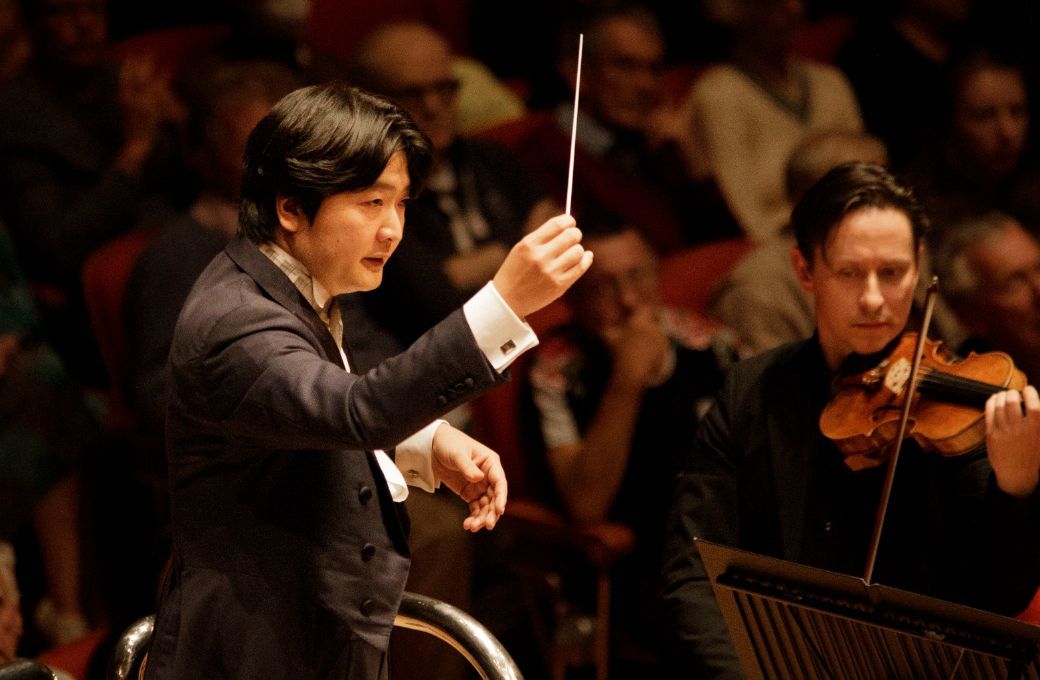So often, it’s not just about what’s being played but when it’s being played. During the week-and-a-half before Tuesday evening’s City of Birmingham Symphony Orchestra concert, beginning a concert with the Carnival Overture would have been unthinkable. Yet here we were, the day after Queen Elizabeth II’s funeral, where, following a minute’s silence and a communal rendition of God Save the King (for most of us, no doubt, our first), Dvořák’s music felt wholly appropriate, emphatically heralding the start of a new era. Kazuki Yamada’s approach beautifully articulated the work’s transitions between exuberance and tenderness, further evidence that the orchestra’s incoming Chief Conductor (from April next year) will bring a new level of sensitivity and nuance to the CBSO podium, somewhat lacking in recent years.

He took a similarly balanced yet unequivocal approach to the New World Symphony. Though generally wanting to press on, he nonetheless allowed the orchestra time to linger in its overtly lyrical moments, along the way bringing real clarity to how the main ideas were being developed. This was extended in the famous Largo, encouraging the CBSO to tilt between brief blazes of outward colour – the brass sounding truly magnificent – and extended sequences of darker inward feeling, the two sounding as opposite poles of the same expressive voice. Following a vigorous dance through the Scherzo (in Yamada’s case literally so, energetically leaping around) the Finale began, without a pause, at a breathless pace, here rendered a synthesis of the first three movements, weaving the drive, lyricism, melancholy and ebullience into a compelling, unified whole.
Galina Grigorjeva’s short choral work In Paradisum was a jarring inclusion. Though adequately performed by the CBSO Chorus, its brand of insipid, primary-coloured, superficial piety cut a queasy note in an otherwise imaginative and authentic evening.
Apropos: if anyone had been wondering whether it were still possible to articulate Mendelssohn’s Violin Concerto in E minor in a distinctively different and personal way, Nicola Benedetti conclusively proved that it was. It was overwhelmingly apparent that her view of the work was a holistic one: this was no mere music moving through a variety of contrasting sections, but a single, coherent train of thought. ‘Train’ is entirely the right word, as from the outset, Benedetti was almost impetuous in her desire to push ahead, with absolutely no lingering or milking anything in all the usual places. To hear the overall musical argument being made more important than any particular, passing moments along the way was genuinely refreshing. The first movement cadenza flowed naturally out of this, becoming an episode of intensive ruminating – the only time Benedetti allowed herself some moments not focused ever onward.
The CBSO took a sympathetic role, supporting, reiterating and bolstering the solo line. The consequence was music that never sounded like a foregone conclusion, but rather the product of a seemingly spontaneous, real-time discourse. For his part, Yamada continually teased out inner details in the orchestra, particularly those that echoed or acted as a counterpoint to the violin.
In lesser hands one might call it hurried, but throughout the second movement, too, Benedetti was never inclined to wallow or coat the lyricism with sugar, simply favouring an honest sense of melodic urgency. This honesty meant that she didn’t always seek to sing out, Yamada surrounding her intimate performance with waves of warmth. With just a hint of a smile, her approach in the final movement, though noticeably more playful, nonetheless continued in the same vein, making the most of the back-and-forth between soloist and orchestra. For a showcase work so endlessly performed these days, it was marvellous to hear it interpreted in such a personal, mature way.


